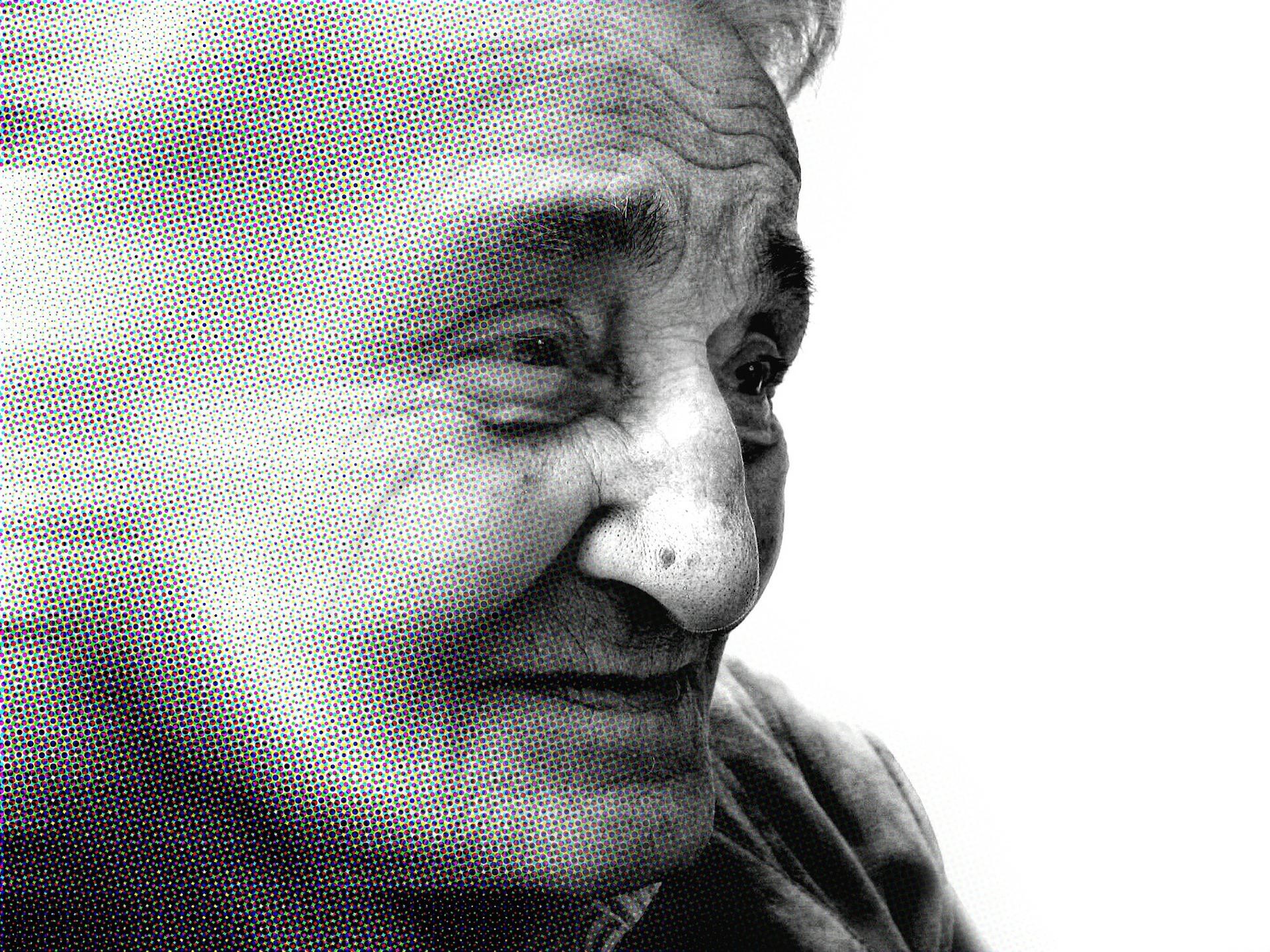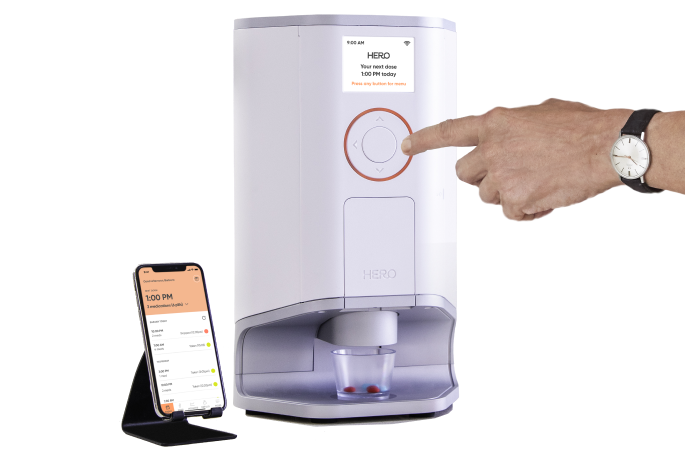How Can We Improve Care for the Cognitively Impaired?

About the Author: Rohit Jayakar MD is a physician in the field of Physical Medicine & Rehabilitation, currently at Stanford Health Care. He specializes in treating musculoskeletal injuries, neurological injuries, and chronic pain.
My dad suffers from fronto-temporal dementia.
Seeing his condition progress has been tragic. His frustrations first stemmed from his inability to communicate through speech or through writing, and eventually turned into personality changes, constant combativeness with family members, refusal to self-feed and perform daily activities, and little preservation of his prior humorous, happy-go-lucky personality.
When family members see these behaviors as individual decision-making rather than disease progression, this transition is emotionally painful to say the least. As a healthcare provider, it is heartbreaking to imagine the confusion, frustration, embarrassment, anger, and myriad of other rollercoaster emotions that families experience as their loved ones begin to suffer from memory problems and forget simple things (like what they ate for breakfast), dangerous things (like that they left the stove on), or important things (like their wedding anniversary). Those close to them unexpectedly find themselves in the difficult position of caring for someone who, day by day, is physically, emotionally, and spiritually transforming into another person entirely. The emotional burden for people suffering with cognitive disorders, as well as their friends and family, is truly immeasurable.
The number of people who suffer from these conditions continues to rise, with over 16 million people in the United States having some form of cognitive impairment today. Of these, over 5 million have Alzheimer’s disease, the most common form of cognitive decline, which largely affects older adults and is the fifth leading cause of death in adults over 65 years old.1 With the aging of the Baby Boomer generation, moreover, some estimates predict that Alzheimer’s will affect over 13 million people in the United States by the year 2050.2
Beyond their healthcare implications, cognitive function impairments also place an enormous economical and societal burden on the general population. In 2020, the estimated healthcare costs associated with Alzheimer’s disease were $305 billion, with most of this cost being attributed to nursing care, home health and caregiving services, and hospice care.3 There are also many indirect costs involved, such as time missed from work for patient and family caregivers. Furthermore, these costs will continue to increase in the upcoming years as the population ages, with some estimates predicting they will increase to $1 trillion annually.3 Even today, the true costs are likely underestimated, since many cases of Alzheimer’s disease and other types of cognitive impairment go undiagnosed, as people assume the mild cases are simply normal age-related changes.
Thanks to ongoing medical advancements and early detection, deaths from most diseases tend to decrease with time despite our aging population. Due to limited treatment success, however, this is unfortunately not the case with most types of cognitive impairment. Between 2000-2013, for instance, deaths from stroke, heart disease, and prostate cancer decreased by 23%, 14%, and 11%, respectively, while deaths from Alzheimer’s disease increased by 71%.4
While a cure for cognitive impairments continues to be developed, it is vital to focus on improving care for those suffering from these conditions today. In order to do so, we must acknowledge what causes impairments, what treatments are currently available, and what we can do to ensure patient health and safety at home.
The Many Forms of Cognitive Impairment
According to the Center for Disease Control and Prevention (CDC), cognitive impairment is when a person has trouble remembering, learning new things, concentrating, or making decisions that affect their daily life.
The term cognition is broad and encompasses several processes in the brain that include thinking, knowing, remembering, judging, and problem-solving.1 These normal cognition skills are involved in everyday activities and are key in gaining knowledge and comprehension. When it comes to types of cognitive processes, there are 6 main categories:
- Attention allows people to focus on specific stimuli in their environment.
- Language involves both understanding and expressing thoughts communicated through written or spoken words.
- Learning requires taking in new information, synthesizing it, and consolidating it with current knowledge.
- Memory involves storing and retrieving information; it is essential for learning.
- Perception allows people to take in information through their senses, including: touch, sight, scent, hearing, and taste.
- Higher reasoning allows for complex processes such as decision-making, problem-solving, and planning.
In cognitive impairment, some or all of the above processes are not working optimally. These symptoms can range from mild to severe. In mild cognitive impairment (MCI), people may notice changes in their cognition, but are still able to do their daily activities independently. In severe cognitive impairment, people lose the ability to take care of themselves due to their reduced understanding of the environment around them and their inability to express themselves and their needs.
Cognitive impairments can be a result of several different brain-related conditions:
Alzheimer’s Dementia
Dementia specifically refers to cognitive impairment from a degenerative brain disease that is significant enough to affect someone’s daily functioning, such as driving, shopping, managing finances, working, or taking care of oneself. By far one of the most common causes of cognitive impairment and dementia, Alzheimer’s Dementia is caused by an abnormal buildup of a protein that deposits itself into the different areas of the brain. The Alzheimer's Association (alz.org) estimates that Alzheimer's Dementia accounts for 60 to 80 percent of dementia cases. Alzheimer's Dementia is common in geriatric patients, but it is not part of normal aging and younger patients can be diagnosed with Alzheimer's as well.
Vascular Dementia
In vascular dementia, people can develop severe cognitive deficits following a stroke, which is an insult to the brain due to lack of oxygen or bleeding that damages brain tissue. The National Institute on Aging (NIA) explains that vascular dementia can also be caused by other vascular brain injuries, which can arise due to risk factors including atrial fibrillation, diabetes, high blood pressure, and high cholesterol.
Fronto-temporal Dementia
In fronto-temporal dementia, patients experience degeneration in brain areas responsible for personality, social inhibitions, and communication. It is common to see severe personality changes and the presence of anger and stubbornness with this medical condition.
A famous example of how frontal lobe damage can change a person is Phineas Gage, a railroad construction worker. He improbably survived an accident where a large iron rod went through his skull and out to the other side, directly through his frontal lobe. Although he survived with no significant physical impairments, his mental capacities not only declined, but he had radical personality changes. While he was described as even-tempered, pleasant, energetic, and charismatic prior to the injury, he was full of anger and inappropriate behaviors (profanity, inappropriate sexuality, violence) following the injury.10 This helped us understand the importance of the frontal lobe not only in thinking, but in personality.
Traumatic Brain Injury
Motor vehicle accidents, falls, or other head trauma, can also lead to long-term cognitive impairments by causing direct damage to brain tissue. Furthermore, brain injuries can alter the flow of cerebrospinal fluid and can cause it to build up, a condition known as hydrocephalus. In this scenario, fluids can put pressure on healthy brain tissue and cause further damage.
Congenital Impairments
Cognitive impairment can present from birth due neurological, genetic, or environmental reasons. Common neurological conditions that can be risk factors for developing a lifelong cognitive impairment include cerebral palsy and spina bifida; genetic conditions include Down syndrome; and environmental factors include prenatal infections and drug or alcohol exposure.
Neurological Conditions
Dementia can also be a late-stage manifestation associated with other neurological conditions, such as: Huntington’s disease, Parkinson’s disease, and Creutzfeldt-Jakob disease. Even though cognitive impairment and memory loss are not the main problems in these conditions, it often becomes a prominent feature late in the disease as opposed to during the early stages.
Reversible causes of dementia
Lastly, although most types of dementia are incurable, some can be treated successfully by clinicians and even cured. Depression is the most common cause of reversible dementia; with severe depression, people can lose the ability to reason, think rationally, and process environmental stimuli normally.5
Other causes of dementia – conditions like severe vitamin B12 deficiency, hypothyroidism, or medication side effects – can be treated by addressing the culprit. Fortunately, people’s cognition eventually returns to normal in most of these cases.
Seeking Treatment for Cognitive Impairments: What Can You Expect?
Initial Tests and Imaging
When seeking treatment for a cognitive impairment, the first step involves gathering information from the patient and family members, as well as a brief mental status exam, the patient's medical history, and potentially more thorough cognitive testing like brain imaging or neuropsychological testing.
To gather structural information about the brain, CT or MRI scans are performed. Bloodwork is also drawn to rule out other causes of an altered mental status (e.g. infection) and to evaluate for the reversible causes of dementia.
Medications to Treat Cognitive Impairment
While there is currently no cure for cognitive impairment or dementia, the FDA has approved two classes of medications––memantine and cholinesterase inhibitors––that have demonstrated decreased progression of Alzheimer’s disease.6
There are also several medication classes available to help with some of the consequences of declining cognitive abilities and improve the patient's general wellness. These include medications to aid with sleep at night, promote wakefulness during the day, reduce agitation, treat underlying anxiety or depression, and help with bowel or bladder incontinence.
How to Optimize In-Home Care for the Cognitively Impaired
Medication Management
For those with cognitive impairments, it becomes exceedingly difficult to self-manage medications. This issue only becomes more crucial as their condition progresses. Moreover, older patients with dementia have the additional challenge of managing the medications that they are already taking for their other medical comorbidities.
Medication non-adherence in those with dementia is well-established, with estimates for correct medication use ranging from just 17% to 42% for this condition.7 With non-adherence being associated with an increased risk of hospitalization or death, it is an essential challenge that must be tackled when medication is prescribed.7
Non-adherence primarily stems from two factors:
- In many cognitive impairment cases, there may be a lack of assurance that the patient will actually agree to take the medication. This can be especially difficult in severe cases of cognitive impairment, particularly when patients are agitated or combative. Strategies to combat this challenge ultimately depend on the patient’s individual traits, but can include caregiver persistence, providing small rewards for taking medication, or mixing medications with food or drinks.
- Beyond lack of assurance, medication adherence becomes a challenge when a patient has trouble with forgetfulness and may not remember which medications to take and when. To ensure consistent organization and reminders, the National Institute of Health (NIH) recommends making lists, worksheets, daily reminders, and using pill boxes. Unfortunately, these processes can be prone to error and require extremely organized and reliable caregivers. Additionally, pillboxes are not secure and still pose the risk of medication duplication if one is not carefully paying attention to their organization and daily dosing. In some cases, such duplication could even lead to overdosing on medications that are life-threatening at unintended doses. Furthermore, there is little research that shows that any of these strategies ultimately improve outcomes in patients with dementia.8
Fortunately, the rise of new technologies offers safer and simpler ways to manage medications in those with cognitive impairments and declining mental function. Hero has developed an automated medication dispensing system that can streamline medication management in the home. This can be incredibly helpful for patients to simplify medication regimen and improve compliance, especially in those with complex medication regimens. Hero’s dispenser even shares compliance data with healthcare providers, which reduces the responsibility of manually tracking medication usage. Ultimately, this can lead to improved medical management and health outcomes for patients with many diseases.
For patients with cognitive impairment, such a system can be particularly useful in reducing caregiver burden by decreasing the responsibility of manually tracking one’s medication regimen. This may even allow patients to remain in the home setting longer and delay the transition to a more advanced care facility.
In fact, preliminary research has shown benefits of automated medication dispensing in those with Alzheimer’s disease. In one study, a small group of patients with Alzheimer’s disease used automated dispensing over a 3-4.5 year period in conjunction with caregiver supervision to successfully adhere to their medication regimens while simultaneously reducing caregiver burden.9 Although more extensive research is needed, automated medication dispensing like Hero can be a solution to long-term medication management in the cognitively impaired.
Ensuring At-Home Safety
Another challenge with the cognitively impaired is ensuring safety. Falls, wandering, choking, and other accidental self-injury are all common in those with cognitive impairment. In mild cases, bracelets, phone location trackers, and verbal or written reminders may be sufficient to ensure safety. In severe cases, 24/7 supervision is frequently required, which significantly increases caregiver responsibilities.
Transitioning to Advanced Care
Since dementia is a progressive disease, patients inevitably decline overtime in their ability to take care of themselves. It is important to periodically monitor for progression and make sure patients’ needs are being met. Home assistance and home physical, occupational, and speech therapies can be helpful.
As the disease progresses, there may come a time when those with dementia may have to transition to a higher level of care, such as a skilled nursing facility, in order to meet their medical, grooming, hygiene, feeding, and therapy needs.
Looking Forward
There are many avenues that are being pursued when it comes to improving quality of life for those with cognitive impairments. The main areas of interest include improving access to services, researching new treatments, and using technology to streamline care.
Access to services
Broader policy solutions include increasing societal awareness and funding for infrastructure to care for those with cognitive impairments, such as expansion of home and community based services. These are generally improving but vary by location, as they are typically controlled at the state level.
New Treatments
Scientific and research advancements may help develop new pharmacological options to offer those with cognitive impairments in the future. Unfortunately, despite many trials going on over the last few decades, these are still likely several years away.
Technology
Technological solutions such as Hero’s automated medication dispensing can be a simple and effective way to manage medications for the caregivers of those who suffer from cognitive impairments. As technology continues to improve, there will surely be other developments that have potential to improve care and quality of life.
--
Although living with cognitive impairment or dementia is demanding on the individual, family members, caregivers, and the healthcare system, there is still hope to improve health outcomes for those that are struggling.
References
- APA Dictionary of Psychology. Cognition. American Psychological Association. 2018.
- Herbert LE, Scherr PA, Bienias JL, Bennett DA, Evans DA. Alzheimer’s disease in the U.S. population: Prevalence estimates using the 2000 census. Archives of Neurology 2003;60:1119–1122.
- Wong W. Economic burden of Alzheimer disease and managed care considerations. Am J Manag Care. 2020 Aug;26(8 Suppl):S177-S183. doi: 10.37765/ajmc.2020.88482. PMID: 32840331.
- Alzheimer's Association. 2016 Alzheimer's disease facts and figures. Alzheimers Dement. 2016 Apr;12(4):459-509. doi: 10.1016/j.jalz.2016.03.001. PMID: 27570871.
- Tripathi M, Vibha D. Reversible dementias. Indian J Psychiatry. 2009;51 Suppl 1(Suppl1):S52-S55.
- Robinson DM, Keating GM. Memantine: a review of its use in Alzheimer's disease. Drugs. 2006;66(11):1515-34. doi: 10.2165/00003495-200666110-00015. PMID: 16906789.
- El-Saifi N, Moyle W, Jones C, Tuffaha H. Medication Adherence in Older Patients With Dementia: A Systematic Literature Review. J Pharm Pract. 2018 Jun;31(3):322-334. doi: 10.1177/0897190017710524. Epub 2017 May 24. PMID: 28539102.
- Elliott RA, Goeman D, Beanland C, Koch S. Ability of older people with dementia or cognitive impairment to manage medicine regimens: a narrative review. Curr Clin Pharmacol. 2015;10(3):213-221. doi:10.2174/1574884710666150812141525.
- Kamimura T. Older Adults with Alzheimer's Disease Who Have Used an Automatic Medication Dispenser for 3 or More Years. Clin Gerontol. 2019 Jan-Feb;42(1):127-133. doi: 10.1080/07317115.2017.1347594. Epub 2017 Oct 13. PMID: 29028462.
- O'Driscoll K, Leach JP. "No longer Gage": an iron bar through the head. Early observations of personality change after injury to the prefrontal cortex. BMJ. 1998;317(7174):1673-1674. doi:10.1136/bmj.317.7174.1673a
Complex med schedule? We solved it.
Hero’s smart dispenser reminds you to take your meds and dispenses the right dose, at the right time.

The contents of the above article are for informational and educational purposes only. The article is not intended to be a substitute for professional medical advice, diagnosis, or treatment. Always seek the advice of your physician or other qualified clinician with any questions you may have regarding a medical condition or its treatment and do not disregard professional medical advice or delay seeking it because of information published by us. Hero is indicated for medication dispensing for general use and not for patients with any specific disease or condition. Any reference to specific conditions are for informational purposes only and are not indications for use of the device.



